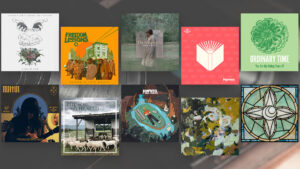We believe all Scripture is God-breathed, useful for teaching, rebuking, correcting, and training in righteousness (2 Tim. 3:16–17). But some books in the Bible present us with more difficulties than others.
To read Job well, you need to be prepared, for it is, in many ways, a difficult book.
Job Is a Hard Book
Job is hard because it deals with a hard subject—suffering. And Job suffers terribly. His wealth, children, and health—not to mention his status in the community—are all violently snatched away. This is gut-wrenching stuff, not for the faint of heart.
Job is hard because it doesn’t necessarily give us the answers we want. We want to know why good and godly people suffer, and the book leaves that question entirely unaddressed. In fact, God’s own role in Job’s calamity is nothing but disconcerting.
Job is hard because much of the book is in the words of Job’s friends, whom God will ultimately declare wrong in their speech. So how are you supposed to know what to believe? And, if you’re attempting to preach from the book, how can you build a sermon on their mistaken opinions?
Job isn’t a detached philosophical treatise on the nature of suffering; it’s much more about the real experience of actual suffering, and what that means for one’s relationship with God.
And what about Job himself? In the seemingly endless dialogues, Job’s way of talking to God seems more petulant than patient. He argues with God and complains about his situation. The book seems to be one long lament. Aren’t Christians supposed to be joyful all the time?
Job is also hard because 95 percent of the book is poetry. Poetic literature requires great sensitivity to the art of metaphor and simile, as well as to the subtle nuances of the various forms of Hebrew parallelism. Our ability to appreciate these features becomes all the more challenging when crossing the vast cultural distance that separates us from the book’s author.
And Job is hard simply because it’s a long book with 42 chapters. And most of those chapters are both repetitive and downright depressing, with Job and his friends going on and on, arguing with one another, neither side giving an inch. It’s been said, “The traditional phrase, ‘the patience of Job,’ might better be [stated] as ‘the patience of the reader of Job.’” Maybe there’s truth to that.
How to Read Job with Profit
Reading Job is hard, but it can be immensely rewarding. Here are five pointers to help you mine its rich treasures.
1. Appreciate the book’s literary form.
Job’s opening and closing narrative sections provide a framework, but the heart of the book is its poetic core. Job isn’t a detached philosophical treatise on the nature of suffering; it’s much more about the real experience of actual suffering, and what that means for one’s relationship with God.
This book is a masterpiece of dramatic art. Allow its composition to contribute to its message.
The fact that it speaks in poetry rather than prose indicates that it’s meant to touch our hearts as well as our heads. Its poetic form reflects the emotional turmoil that Job experiences. And to appreciate its message, the reader must somehow enter into that emotion. You can’t read this book dispassionately and expect to receive what it has to offer.
You must allow yourself to feel something of what Job feels, as uncomfortable as that may be.
2. Don’t rush through Job.
Job is 42 chapters long for a reason.
The emotional turmoil of pain and grief is long. There are no easy answers; no quick fixes. Healing takes time. And the extensive dialogue between Job and his friends, with its conflict and confusion, mimics the experience of real suffering. The book offers no clear answers to Job’s questions, which is what sufferers often experience in their pain. The book itself presents a picture of human experience in a fallen world, in which answers to these questions elude us, and we’re forced simply to trust God.
The book invites the reader into a long journey, and in that process our lives may be shaken up but ultimately transformed.
3. Read Job with an eye to its dramatic character.
Notice the subtle differences in the ways the three friends confront Job, and the way their dispute with him becomes more pointed and antagonistic.
Job’s protestations aren’t cool philosophical reflections; they’re the white-hot outbursts of one caught in a raging river of pain and sorrow.
Consider the function of the discourse on wisdom in Job 28 in the flow of the story. Could it be an interlude that the narrator provides before the final section? And why is the mysterious Elihu introduced suddenly in Job 32 after Job’s final speech? What clues does the author give as to how we are to judge Elihu’s role in the book?
This book is a masterpiece of dramatic art. Allow its composition to contribute to its message.
4. Read Job’s words sympathetically.
Job initially responds piously to his trial in words we’d all admire (Job 1:21; 2:10). But then his loss sinks in, and his words of lament and complaint quickly erupt like a torrent. The initial flash of light that Job experiences fades, and a deep darkness descends—a dark night of the soul.
Job’s protestations aren’t cool philosophical reflections; they’re the white-hot outbursts of one caught in a raging river of pain and sorrow. Recognize that though Job speaks harshly, he continues to seek God. More than anything else, he wants to confront God. He’s more concerned with a relationship than with answers.
And in the end, Job is commended by God. He perseveres in his faith (see James 5:11).
5. Wrestle personally with the questions Job raises.
Do you worship God just for the benefits, or do you see God as worthy of worship simply because of who he is?
Let God’s revelation in the closing chapters challenge you with the central question of the book: can I trust God’s wisdom in running his world more than my own?
Unsettled Yet Secure
Yes, reading Job may unsettle you.
But it can also raise your eyes to God’s glory amid the mysteries of life in this world, teach you sympathy for those who suffer, and prepare you to face affliction with faith.
Is there enough evidence for us to believe the Gospels?
 In an age of faith deconstruction and skepticism about the Bible’s authority, it’s common to hear claims that the Gospels are unreliable propaganda. And if the Gospels are shown to be historically unreliable, the whole foundation of Christianity begins to crumble.
In an age of faith deconstruction and skepticism about the Bible’s authority, it’s common to hear claims that the Gospels are unreliable propaganda. And if the Gospels are shown to be historically unreliable, the whole foundation of Christianity begins to crumble.





































